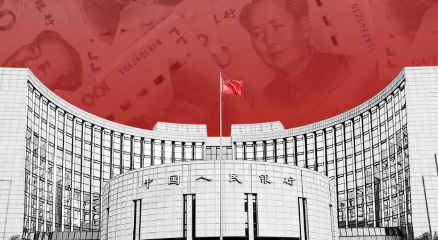
China strengthens its strategy to contain bets against the renminbi, facing pressure from Wall Street, the economic slowdown and the impact of Trump’s tariff threats
China prepares to hold its biggest offshore bond sale in a bid to support the renminbi, as Wall Street increases its bets against the currency due to weakness in the world’s second-largest economy and Donald Trump’s threat of tariffs.
The People’s Bank of China announced on Thursday that it will sell 60 billion renminbi ($8.2 billion) worth of bonds in Hong Kong in January, marking its biggest single sale since auctions began in the territory in 2018.
The bond sale will have the effect of reducing the renminbi’s liquidity and making it more expensive for traders to bet against the currency in markets outside China.
The renminbi weakened, surpassing 7.33 renminbi per dollar in the first trading days of 2025, reaching its lowest level since September 2023. This poses a challenge for Chinese authorities, who have vowed to keep the currency at a stable level.
However, investors believe the central bank will tolerate a gradual weakening of the currency. Global banks predict the renminbi will hit 7.5 per dollar or more by the end of the year, a level last seen in 2007, with serious implications for global trade.
If it reaches that level, China has $3.2 trillion in official reserves and about an additional $1 trillion in unofficial support from state banks and exporters, which can be used to protect the currency.
With the announcement of the bond sale on Thursday, “they are sending a signal that even with the tariff situation, they are doing their best to protect the currency,” said Ju Wang, China’s head of rates and exchange strategy. at BNP Paribas.
The renminbi has weakened despite the People’s Bank of China keeping its fixed exchange rate — an official daily rate around which the renminbi traded in mainland China can vary by up to 2% — stable at about 7.19 renminbi per dollar over the past month .
Outside mainland China, the renminbi is freely traded and is not subject to the trading band. The Chinese central bank has tried to manage devaluation in offshore markets through unofficial guidance and discreet interventions.
A sign of these interventions came on Tuesday when the overnight rate for borrowing renminbi offshore in Hong Kong soared to more than 8%, the highest level in three years, making it more expensive for investors to bet against the currency.
The central bank is able to trigger these increases by draining the offshore renminbi market, for example through the issuance of bonds.
Still, several investors told the Financial Times that they are opting to short the offshore renminbi, believing the currency will weaken further.
The currency’s recent moves “indicate a policy strategy where policymakers are relatively comfortable with a slow, managed weakening against the dollar while maintaining some stability against a broader basket of currencies,” said one hedge fund manager.
Most investors expect the biggest weakening to occur when the Trump administration’s new tariff policies are clearer. Trump will be inaugurated on January 20th.
JPMorgan, Barclays and BNP Paribas predict the renminbi will fall to 7.5 per dollar by the end of 2025. Nomura sees it reach 7.6 by May, while Bank of America estimates it will reach 7.4 by the end of the year.
Some believe the currency could weaken beyond 7.5. “Our working assumption is that the currency falls to between 8 and 8.1 by the middle of [2025]conditioned on this relatively large tariff shock,” said Robert Gilhooly, senior emerging markets economist at Abrdn.
Compared to Trump’s previous round of tariffs in 2017, “the risks are tilted toward a larger devaluation this time around,” he added. This “will allow for a considerable adjustment of the currency to alleviate tariff pressure; That’s what we saw last time.”
A cheaper renminbi would help Chinese exporters remain competitive in the face of higher U.S. tariffs, but it could also leave China vulnerable to accusations of currency manipulation, a criticism made by the previous Trump administration.
With information from the Financial Times*
Source: https://www.ocafezinho.com/2025/01/09/china-reforca-protecao-de-sua-moeda-contra-ataques-de-wall-street/

